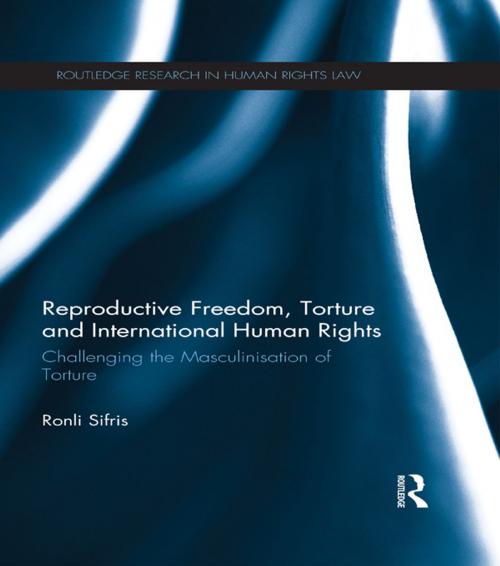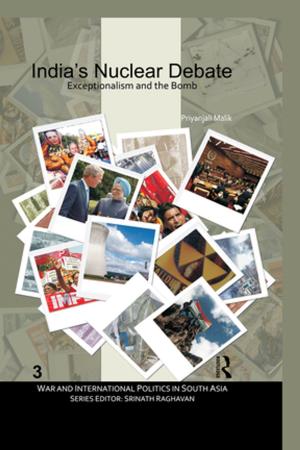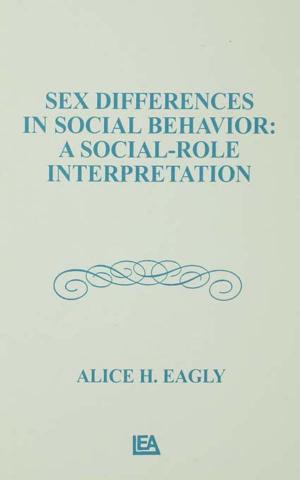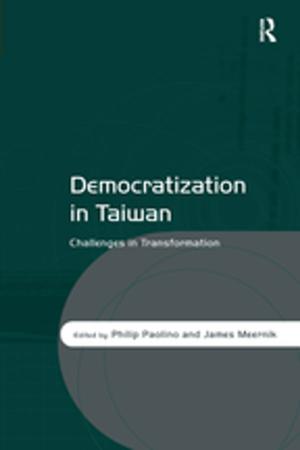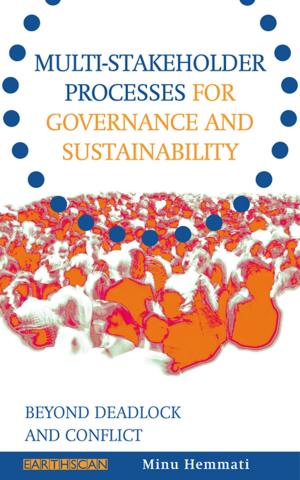Reproductive Freedom, Torture and International Human Rights
Challenging the Masculinisation of Torture
Nonfiction, Reference & Language, Law, Gender & the Law, International, Social & Cultural Studies, Political Science, Politics, Civil Rights| Author: | Ronli Sifris | ISBN: | 9781135115210 |
| Publisher: | Taylor and Francis | Publication: | December 13, 2013 |
| Imprint: | Routledge | Language: | English |
| Author: | Ronli Sifris |
| ISBN: | 9781135115210 |
| Publisher: | Taylor and Francis |
| Publication: | December 13, 2013 |
| Imprint: | Routledge |
| Language: | English |
This book contributes to a feminist understanding of international human rights by examining restrictions on reproductive freedom through the lens of the right to be free from torture and other cruel, inhuman or degrading treatment. Ronli Sifris challenges the view that torture only takes place within the traditional paradigm of interrogation, punishment or intimidation of a detainee, arguing that this traditional construction of the concept of torture prioritises the experiences of men over the experiences of women given that the pain and suffering from which women disproportionately suffer frequently occurs outside of this context. She does this by conceptualising restrictions on women’s reproductive freedom within the framework of the right to be free from torture.
The book considers the gendered nature of international law and the gender dimensions of the right to be free from torture. It examines the extension of the prohibition of torture to encompass situations beyond the traditional detainee context in recent years to encompass situations such as rape and female genital mutilation. It goes on to explore in detail whether denying access to abortion and involuntary sterilization constitutes torture or other cruel, inhuman or degrading treatment under international law. The book looks at whether limitations on reproductive freedom meet the determining criteria of torture which are: severe pain or suffering; being intentionally inflicted; being based on discrimination; linked in some way to a State official; whether they constitute lawful sanctions; and the importance of the concept of powerlessness. In doing so the book also highlights how this right may be applicable to other gender-based abuses including female genital mutilation, and how this right may be universally applied to allow women worldwide the right to reproductive freedom.
This book contributes to a feminist understanding of international human rights by examining restrictions on reproductive freedom through the lens of the right to be free from torture and other cruel, inhuman or degrading treatment. Ronli Sifris challenges the view that torture only takes place within the traditional paradigm of interrogation, punishment or intimidation of a detainee, arguing that this traditional construction of the concept of torture prioritises the experiences of men over the experiences of women given that the pain and suffering from which women disproportionately suffer frequently occurs outside of this context. She does this by conceptualising restrictions on women’s reproductive freedom within the framework of the right to be free from torture.
The book considers the gendered nature of international law and the gender dimensions of the right to be free from torture. It examines the extension of the prohibition of torture to encompass situations beyond the traditional detainee context in recent years to encompass situations such as rape and female genital mutilation. It goes on to explore in detail whether denying access to abortion and involuntary sterilization constitutes torture or other cruel, inhuman or degrading treatment under international law. The book looks at whether limitations on reproductive freedom meet the determining criteria of torture which are: severe pain or suffering; being intentionally inflicted; being based on discrimination; linked in some way to a State official; whether they constitute lawful sanctions; and the importance of the concept of powerlessness. In doing so the book also highlights how this right may be applicable to other gender-based abuses including female genital mutilation, and how this right may be universally applied to allow women worldwide the right to reproductive freedom.
